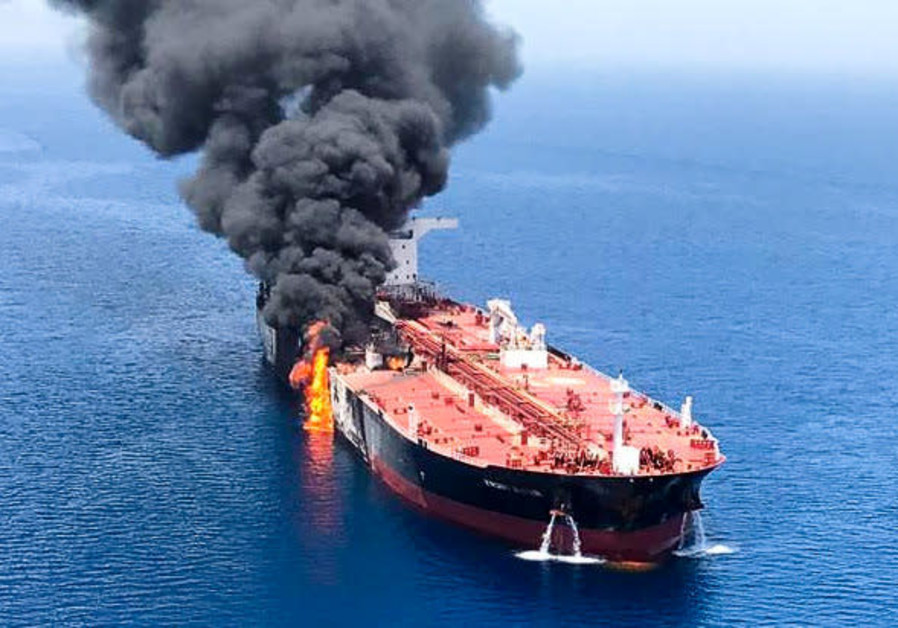Saudis, UK agree that Iran behind attacks, Iran denies involvement

An oil tanker is seen after it was attacked at the Gulf of Oman, June 13, 2019. (photo credit: ISNA/REUTERS)
Saudi Arabia and Britain agreed with the United States assessment that Iran was behind the suspected attacks on two oil tankers in the Gulf of Oman.
Meanwhile, Iran rejected the US claim that they were involved in Thursday’s tanker attacks at the United Nations on Thursday.
Now is the time to join the news event of the year – The Jerusalem Post Annual Conference!
For more information and to sign up, click here>>







Comments are closed.